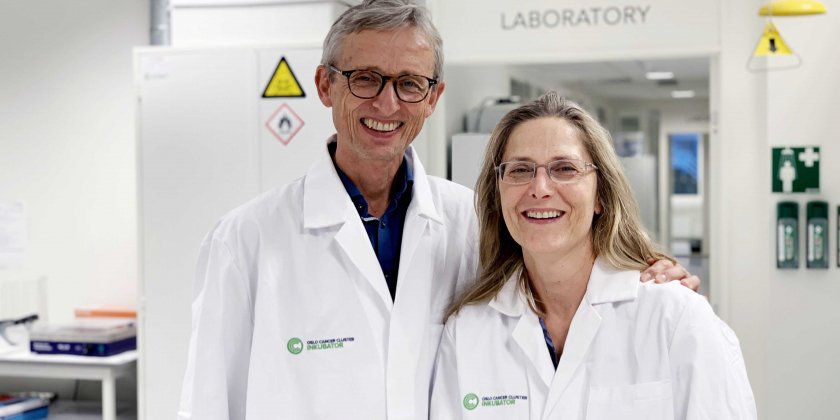Accelerating cell therapies against cancer
Oslo Cancer Cluster Incubator has received a grant from the City of Oslo, which will be used to develop the infrastructure for cancer cell therapies.
Oslo Cancer Cluster Incubator has received NOK 300 000 in 2020 from the City of Oslo for a project that will support the development of a type of cancer treatment, known as cell therapies (scroll down to the bottom of this page to read a definition for cell therapy). Different forms of cancer cellular therapies are being explored in the Incubator, including genetically modified immune cells.
Cell therapies have the potential to cure cancer and turn it into a chronic disease. More research is however needed to document the full potential of cell therapies.
Specialised cell laboratory facility
The project involves setting up a specialised facility, which will be used for pre-clinical research and development of cell-based medicinal products.
Oslo Cancer Cluster Incubator’s laboratories are currently used for the design of therapeutic cells and to assess the effectiveness and safety of these cells in pre-clinical testing.
The funding from the City of Oslo will enable Oslo Cancer Cluster Incubator to expand the laboratories with the appropriate infrastructure and equipment. The laboratories will support researchers and companies in their development of new cell-based therapies. The initiative is hopefully a first step to establish production of T cell therapies in Norway as part of building a viable health industry.
Janne Nestvold, laboratory manager at Oslo Cancer Cluster Incubator, will coordinate the project.
“The specialised facility enables the Incubator to contribute in the development of cancer cell-based therapies in a preclinical setting,” said Janne Nestvold.
Several research groups in the Incubator already focus on the development of cell therapies. Now, they will have access to dedicated spaces with much needed equipment.
Supporting public-private research collaboration
Oslo Cancer Cluster Incubator is located next to the Norwegian Radium Hospital, one of Europe’s leading cancer hospitals and a part of Oslo University Hospital.
The Incubator’s partnership with Oslo University Hospital is one-of-a-kind in Norway. Hospital research staff work side-by-side with researchers from private companies and exchange experiences in a collaborative setting. They are also connected, through Oslo Cancer Cluster, to a global network of key players in the cancer research field.
Bjørn Klem, general manager of Oslo Cancer Cluster Incubator, hopes the Incubator can further assist both hospital research staff and researchers from private companies to bring forward new treatments.
“The support from City of Oslo is much appreciated as it enables us to take this important field of cell therapy forward, by supporting commercialisation of the growing number of start-ups in this area. This will allow companies to grow in Norway and create jobs, supporting the vision of the Oslo Science City initiative,” said Bjørn Klem.
About the RIP funding
The regional innovation programme (RIP) for the Oslo region has funded a total of NOK 25 million for business development and innovation in 2020.
The goal of RIP is to strengthen the Oslo region’s international competitiveness in cluster- and network development, entrepreneurship, supplier development and commercialisation.
This year’s award had a special emphasis on the health sector, marked by the ongoing coronavirus pandemic. More than ever, it has become important to support the local innovation clusters and the Norwegian health start-up companies.
DEFINITION
CAR T-cell therapy is a type of treatment in which a patient’s T cells (a type of immune system cell) are changed in the laboratory so they more effectively will attack cancer cells. T cells are a specific type of white blood cells taken from a patient’s blood. Then the gene coding for a receptor that binds to a protein on the patient’s cancer cells, is added to the T cell in the laboratory. The receptor is called a chimeric antigen receptor (CAR) and enable the patient immune system to better recognise and fight cancer cells. Large numbers of the CAR T cells are then grown in the laboratory and given to the patient by infusion. CAR T-cell therapy is approved for treatment of some cancer patients (leukaemia or lymfoma) and is studied in the treatment of many other types of cancer with promising effects.
Source: National Cancer Institute













